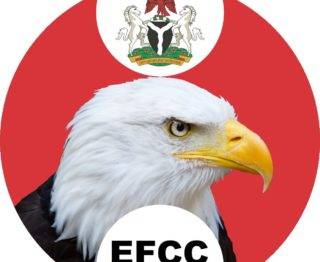The Economic and Financial Crimes Commission (EFCC) has made a major breakthrough, with the apprehension of 34 suspected currency speculators in Abuja. The arrests were made by EFCC operatives deployed to the Taskforce on Currency Mutilation, Dollarization of the Economy, and Forex Malpractice, underscoring the agency’s relentless efforts to curb financial crimes across the nation.
The sting operation, conducted on Friday, April 26, 2024, was prompted by actionable intelligence indicating rampant illegal trading of dollars in the Wuse Zone 4 area of the Federal Capital Territory, Abuja. The suspects, whose identities have been disclosed, include a diverse range of individuals allegedly involved in perpetrating foreign exchange fraud. Among them are Usman Mohammed, Abdullahi Nasir, Abubakar Saleh, and a host of others implicated in illicit currency dealings.
The EFCC’s swift action underscores its commitment to upholding the integrity of the foreign exchange market and safeguarding the nation’s financial system from unscrupulous practices. These arrests mark a significant milestone in the agency’s ongoing efforts to combat economic crimes, particularly in the realm of forex malpractice. As investigations proceed, the suspects are poised to face legal proceedings, serving as a stern warning to would-be perpetrators of financial fraud.
Restoring Market Integrity: EFCC’s Vigilance in Action
The EFCC’s proactive stance against currency speculation and forex malpractice reflects its unwavering dedication to restoring integrity to the financial markets. The apprehension of the 34 suspects sends a clear message that illegal activities in the forex market will not be tolerated, as the agency continues to employ stringent measures to root out perpetrators of financial crimes.
By collaborating with relevant stakeholders and leveraging actionable intelligence, the EFCC has demonstrated its capacity to swiftly respond to emerging threats in the financial sector. The agency’s taskforce on currency manipulation has proven instrumental in identifying and neutralizing syndicates engaged in illicit forex activities, thereby bolstering investor confidence and stabilizing the foreign exchange market.
As the EFCC intensifies its efforts to sanitize the financial landscape, stakeholders applaud the agency’s vigilance in safeguarding the nation’s economic interests. The arrests serve as a testament to the effectiveness of coordinated law enforcement initiatives in combating financial fraud and preserving market integrity.
Legal Proceedings Await: Suspects Await Trial
With the apprehended suspects slated for arraignment following the conclusion of investigations, legal proceedings loom on the horizon for those implicated in currency speculation and forex fraud. The EFCC’s commitment to due process underscores its adherence to the rule of law, ensuring that justice is served in accordance with established legal protocols.
As the judicial process unfolds, the accused individuals will have the opportunity to defend themselves against the allegations leveled against them. The forthcoming trial represents a pivotal moment in the fight against financial crimes, as the outcomes will set a precedent for future cases involving currency manipulation and illicit forex activities.
In the interim, the EFCC continues its efforts to gather evidence and build a robust case against the suspects, ensuring that no stone is left unturned in the pursuit of justice. As the legal proceedings progress, stakeholders remain vigilant, eager to see perpetrators of financial fraud held accountable for their actions.
Addressing Nigeria’s Foreign Exchange Challenges: A Call for Industrialization and Exportation
Amidst concerns over Nigeria’s foreign exchange challenges, experts argue that the root cause lies not in external factors, but rather in domestic issues such as liquidity and industrialization. Contrary to popular belief, the reliance on crude oil exports as the primary source of foreign exchange earnings has proven to be unsustainable in the long term. Instead, there is a pressing need to diversify the economy and promote local production and exportation.
To address the underlying issues affecting foreign exchange stability, stakeholders emphasize the importance of collaboration between citizens and the government. By fostering an environment conducive to industrial growth and entrepreneurship, Nigeria can reduce its dependence on imported goods and bolster its export capabilities. Through targeted policies and investment in key sectors, such as agriculture and manufacturing, the country can harness its potential for economic growth and mitigate the impact of importation on the value of the naira.
Table of Contents
Discover more from OGM News NG
Subscribe to get the latest posts sent to your email.














